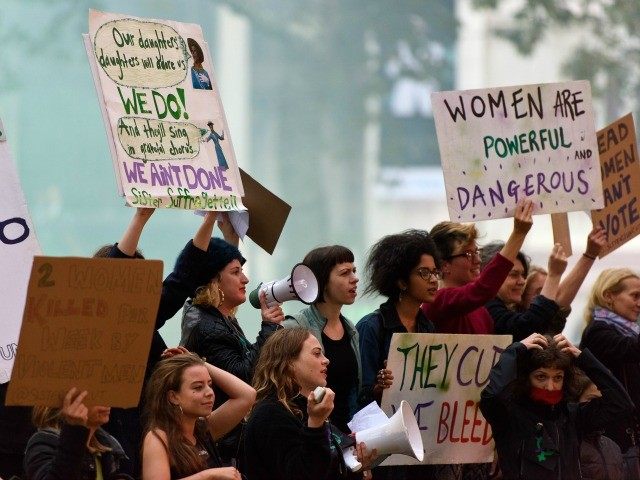The London Film Festival opened Wednesday with “Suffragette“, the story of Britain’s feminist movement that fought for women’s voting rights in the early 20th century.
“This is such an important movie,” said Meryl Streep, one of the film’s stars, at a press conference in London.
The three-time Oscar-winning American plays Emmeline Pankhurst, who founded the Women’s Social and Political Union in 1903 in order to win the right to vote for women.
The intense drama sees Pankhurst become a fugitive after calling for women to engage in acts of civil disobedience, such as throwing stones through windows and starting fires, having become disillusioned by years of unsuccessful peaceful protests.
But the Hollywood star only appears on screen for a matter of minutes, as director Sarah Gavron and writer Abi Morgan instead recount the fight through Maud, a married mother working in a London laundry in 1912, who is played by British actress Carey Mulligan.
The event was hit by a protest from the feminist group Sisters Uncut, with demonstrators shouting “We are suffragettes” and holding posters reading “Two women killed every week” and “50/50 parliament” to highlight a lack of women lawmakers.
Helena Bonham Carter, who plays a pharmacist-turned-bombmaker in the film, praised the protesters.
“I think it’s marvellous. That is exactly what the suffragettes were about,” Bonham Carter said.
“Hopefully the film will inspire anybody who feels an injustice has been done, to be bold enough to protest.”
Streep commended the film for including women from different economic backgrounds.
“The great achievement of the film is that it’s not about women of a certain class, it’s about a working girl and I think it’s why we can enter so easily into the film, she looks like us,” added Streep.
– Better future –
Maud at first is shocked but captivated by the broken windows, but soon realises she has the power to break free from her rapist boss, whose abuses she initially suffers in silence.
Encouraged by the solidarity of her fellow suffragettes, she plunges headfirst into the clandestine world of civil disobedience, finding a willing accomplice in Bonham Carter.
For her troubles, Maud is on the receiving end of police batons and detained in filthy cells. She is scorned by her husband and neighbours, and is soon left without her son.
But day by day she becomes more convinced that a better future can only be built on a platform of female rights, and most importantly, the right to vote.
Beyond the politics, the film also gives an insight into the lives of working-class women of the time.
It was a life in which “marriage was allowed at 12”, and in which a married woman “had no further claim to not only her name, but any property she brought to the marriage”, explained Streep.
Mulligan said she was drawn to the film as “it didn’t feel like a documentary about a time, it felt like a film about today”.
“It’s a film to mark the achievement of what these women did and what they gave to us,” she added.
“And also to highlight… that we still live in a society that’s sexist.”
Director Gavron said it was important to bring the struggle, which led to universal suffrage in 1928, to the big screen as it had been “written out of our history”.
“It took a long time to get it on the school curriculum,” she added. “I wasn’t taught anything about it and later read a few lines at the bottom of a history book”.
The film, which will be released in Britain on October 12 and the US on October 23, ends with a poignant list of the dates women earned voting rights across the world, including Finland in 1906, France in 1944, Switzerland in 1971 and Saudi Arabia in 2015.

COMMENTS
Please let us know if you're having issues with commenting.